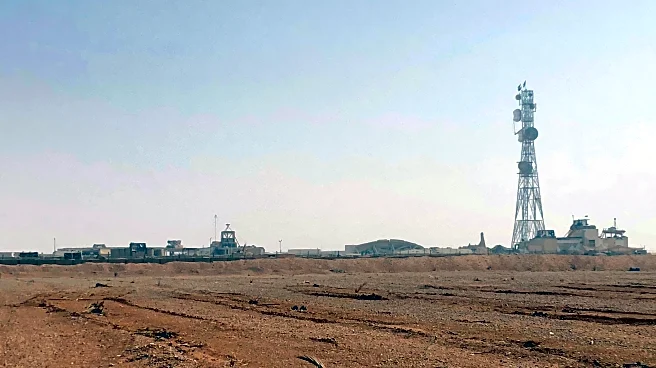What's Happening?
Afghanistan is gradually regaining internet access following a significant technical disruption that led to a nationwide blackout. The Taliban and the Afghan Ministry of Information and Culture have confirmed the restoration of services, with phone call services also being gradually restored. The internet watchdog NetBlocks reported a partial restoration of connectivity after initially declaring a total internet blackout. The United Nations Assistance Mission in Afghanistan noted that the telecommunications outage appeared to have been reversed, although the reasons for the initial cut remain unclear. The outage had disrupted various sectors, including banking, travel, and aid work, and had a significant impact on Afghan women and girls who rely on the internet for education.
Why It's Important?
The restoration of internet services in Afghanistan is crucial for the country's economic stability and the rights of its citizens, particularly women and girls who have been barred from attending school beyond the sixth grade. The blackout had raised concerns about the Taliban's control over information and communication, potentially limiting Afghans' access to the outside world. The disruption also affected the United Nations' ability to provide critical assistance, highlighting the broader implications of such outages on international aid efforts. The situation underscores the ongoing challenges in Afghanistan as it navigates governance under the Taliban, with significant implications for human rights and freedom of expression.
What's Next?
The Afghan Ministry of Information and Culture is working to ensure the complete restoration of services, but challenges remain in certain areas. The international community, including the United Nations, will likely continue to monitor the situation closely, advocating for the rights of Afghan citizens to access information and communication freely. The Taliban's future actions regarding internet governance will be pivotal in shaping Afghanistan's relationship with the global community and its internal socio-economic dynamics.
Beyond the Headlines
The internet blackout in Afghanistan raises ethical and legal questions about the control of information and the rights of citizens in conflict zones. The incident highlights the vulnerability of communication infrastructure in politically unstable regions and the potential for such disruptions to be used as tools of control. The situation also reflects broader global concerns about digital rights and the role of governments in regulating internet access.












